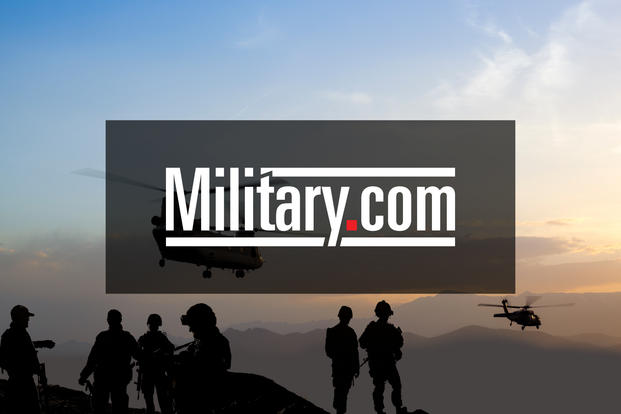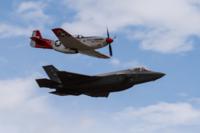On the heels of a five-state primary sweep, self-styled "presumptive" Republican presidential nominee Donald Trump appeared in Washington today to outline a foreign policy stance that purported to add new funding for the armed forces, defeat extremists abroad and assert dominance over competing nations.
Aided by pre-written remarks and a teleprompter, Trump's speech, given at Washington, D.C.'s Mayflower Hotel, lacked much of the bombast and bluster that have characterized most of his addresses. However, the speech was long on indictments of the current administration and short on specifics about how to execute his own plans. And his policies, which he claimed would gain the support of all Americans, on both sides of the aisle, at times appeared to contradict each other.
Trump was introduced by Zalmay Mamozy Khalilzad, a former U.S. ambassador to Iraq, Afghanistan and the United Nations under President George W. Bush and a current counselor for the Center for Strategic and International Studies.
The world, Khalilzad said, finds itself in a period of instability that threatens international order, and the U.S. is in "withdrawal and retreat" after a decade-and-a-half of war.
"Mr. Trump has been a provocative voice in this debate," Khalilzad said. "His message has resonated with a significant part of our electorate."
Taking the stage, Trump lost no time in getting to the heart of that message: American foreign policy, he said, is a "complete and total disaster."
The scourge of the Islamic State, or ISIS, he said, was created as a result of misguided U.S. intervention in the Middle East, from Iraq, Egypt and Libya to "President Obama's line in the sand on Syria."
"All grew from the idea that we could make Western democracies out of countries that had no interest in becoming a Western democracy. We tore up what institutions they had and then were surprised at what we unleashed," he said. " … Thousands of Americans killed, just lives, lives lives wasted, horribly wasted. Many trillions of dollars were wasted as a result. The vacuum was created that ISIS would fill."
On the topic of ISIS, Trump lambasted President Obama and his Democratic rival, former Secretary of State Hillary Clinton, for refusing to "name the enemy" of radical Islam. The U.S., he said, must devise a plan to halt the spread of radical Islam, an effort he characterized as a philosophical struggle, but one that may require military action. For the extremist group itself, he issued a threat.
"Their days are numbered," he said. "I won't tell them where, I won't tell them how."
Likewise, he added, America should stop telegraphing its strategic moves, becoming more unpredictable against its enemies.
Several of Trump's goals appeared to be at odds with each other, or lacked clarity about how he proposed to reach them. The nation is overextended and in debt, he said, and has wasted trillions on wars in the Middle East with nothing to show for it. At the same time, he said, the military needs to be rebuilt, with increased funding and new ships and aircraft. He proposed to solve both by curtailing wasteful spending, implementing better trade practices and restoring lost American jobs by policing U.S. borders.
"I'm the only one, believe me, I know 'em all, I'm the only one that knows how to fix it," he said. " … A Trump administration will lead a free world that is properly armed and funded, and funded beautifully."
Trump also reiterated his previous position that U.S. allies are not paying their fair share into their own defense, saying that only four out of the 28 NATO nations spent the minimum 2 percent GDP on defense. America, he said, has to get tough and require these countries to pay up, or let them fend for themselves.
In the next breath, though, he said that America isn't doing enough to support international allies. He castigated Obama for "abandoning" missile defense plans with Poland and the Czech Republic and for "snubbing and criticizing" Israel while going soft on nearby hostile nations.
"He's treated Iran with tender love and care and made it a great power," Trump said of Obama, repeating his criticisms of the 2015 deal by which Iran agreed to give up some nuclear capabilities in exchange for reduced economic sanctions.
America, Trump said, has to be willing to walk away from any negotiating table if a solution "that's great for America" isn't attainable.
"My foreign policy will always put the interests of the American people and American security above all else," he said. " 'America first' will be the major and overriding theme of my administration."
-- Hope Hodge Seck can be reached at hope.seck@monster.com. Follow her on Twitter at@HopeSeck.





























